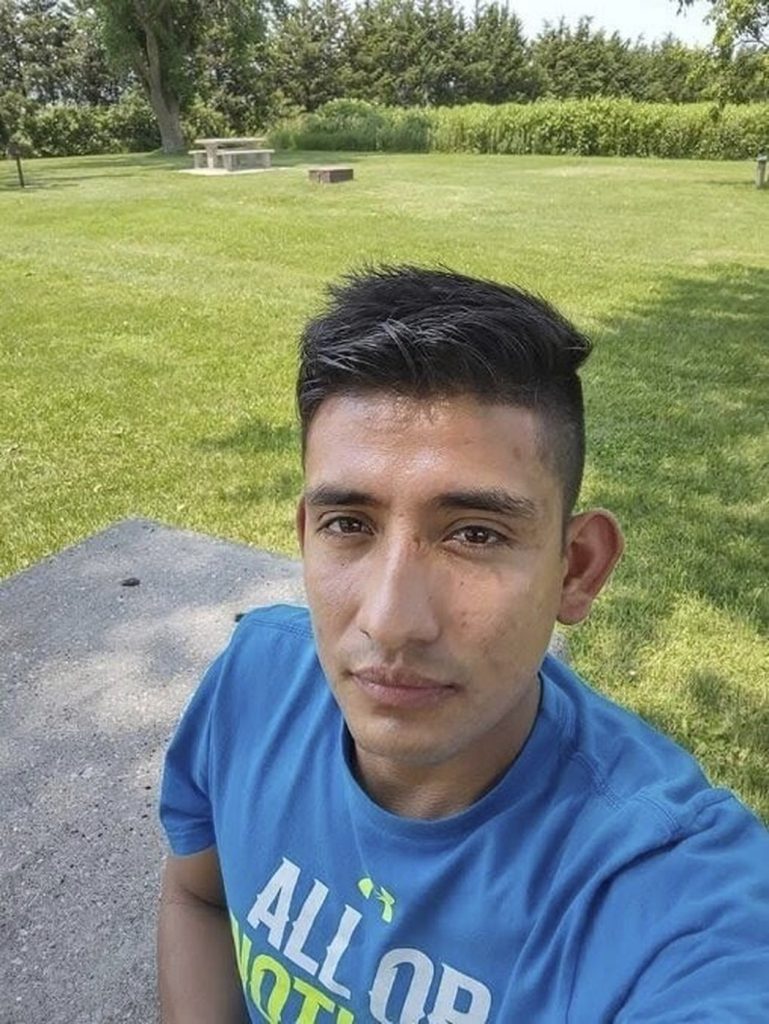MUSCATINE, Iowa (AP) — Felipe de Jesus Hernandez Marcelo, a 28-year-old Mexican immigrant, faced a life-altering situation when he was shot during a robbery attempt on June 21. After nearly dying from his injuries, Hernandez sought to retrieve his belongings, which included his car and cash, from the Muscatine, Iowa police. Instead of being reunited with his possessions, he was arrested on an old warrant for failing to pay a traffic ticket, which ultimately led to his detention by Immigration and Customs Enforcement (ICE).
Since entering the United States illegally in 2021, Hernandez has been caught in the crosshairs of the Trump administration’s heightened immigration enforcement policies. His case highlights a troubling trend wherein crime victims find themselves facing arrest and detention amidst a crackdown on illegal immigration. ICE has reversed a previous policy that offered protection to many victims of crime, especially those eligible for U and T visas, which are designated for crime and human trafficking victims and their families. This policy shift has resulted in a sharp decline in applications for these protective visas.
Critics argue that this policy change not only inflicts unnecessary hardship on victims and their families but also jeopardizes public safety by discouraging undocumented individuals from reporting crimes or cooperating with police. Dan Kowalski, a retired attorney and immigration law expert, expressed concern that any interaction with law enforcement now poses a risk of ICE detention for immigrants.
The Biden administration initially sought to address these concerns by encouraging ICE agents to recognize signs of victimization as a positive factor in their decision-making process regarding detention. However, conservative voices have opposed this stance, asserting that being a crime victim should not automatically grant immigration benefits. The newly adopted ICE policies allow for the detention of crime victims, including those holding U and T visas, as long as agents verify that detaining the individual will not compromise police investigations.
The repercussions of these policy changes have become evident, with a nearly 50% decrease in U visa applications reported by the end of March 2025, shortly after the start of the new administration. Many immigrants are wary of applying for visas, fearing that doing so might draw the government's attention and lead to removal proceedings. Immigration lawyer Bethany Hoffmann recounted a case in which her client, whose wife was a kidnapping victim, was arrested by ICE while attending a routine appointment related to his U visa application.
Furthermore, a new practice from ICE and immigration judges has mandated the indefinite detention of individuals who entered the U.S. without permission. In contrast to the past three decades, when many of these detainees had the opportunity to be released pending their removal cases, Hernandez finds himself in a different situation. With a steady job, local family ties, and minimal criminal history, he would have been a suitable candidate for release. Instead, he has spent nearly three months in the Muscatine County Jail under ICE detention.
During this time, he has been separated from his 9-year-old son, unable to attend medical appointments critical for his recovery, and incapable of working his construction job to support his family. Hernandez described the agony of being denied medication in the initial days of his detention, where he suffered intensely from his gunshot wounds and was confined to a single cell.
On September 10, a federal judge ruled that ICE's non-provision of a bond hearing for Hernandez was illegal, declaring that he was facing “irreparable harm” due to his prolonged detention without the opportunity for release. As a result, an immigration court was ordered to conduct a bond hearing within seven days, leaving Hernandez’s future hanging in the balance.











